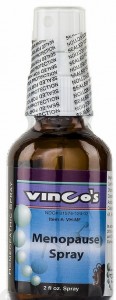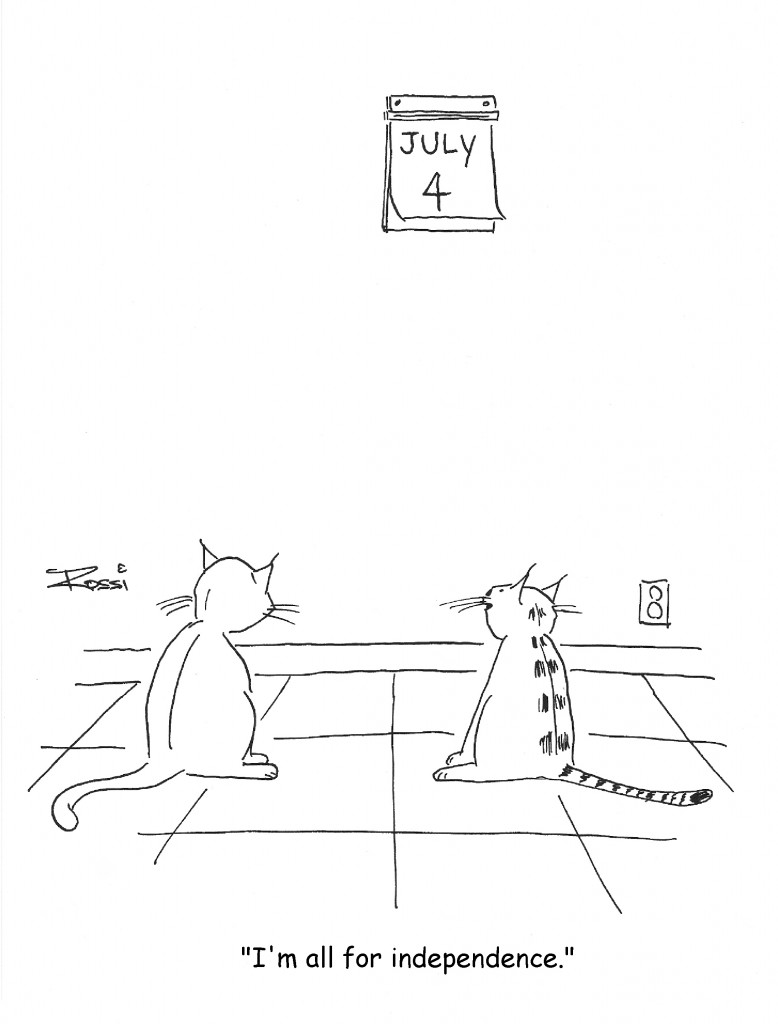Is pillow talk the key to a better relationship?
You can find today’s post over at Medium…
Read MoreGuyside: Don’t trust the media! (Well, completely)
Yesterday, a friend of mine posted a link on her FB profile to a study about births by Caesarean section yesterday. The link, to the site IFLS (or, if you’re a saltymouth like me, I fucking love science), pointed to a study that found “Cesarean delivery may cause epigenetic changes in Babies DNA.”
Her caption: “Great. Something else for me to feel guilty about.”
Now, I know very well that my friend’s line was tongue-in-cheek. But there’s a glint of a problem underneath her tossed-off line.
The study looked at 43 babies, 25 born by vaginal birth and 18 by Caesarean. The researchers theorize that the changes in DNA that take place in Caesarean babies are related to the relative lack of stress they’re exposed to compared to babies being born the “normal” way and the corresponding lack of activation of their immune systems.
But I don’t want to talk about this study — I want to talk about how we all react to studies. Last week I talked about being healthily skeptical of alternative treatments. But we need a healthy skepticism about ALL treatments and research, and we need to ensure we don’t kick ourselves because of our past actions.
It’s easy to look at current dietary, drug, or treatment recommendations and look back at choices you’ve made and see them as wrong or ill-advised. For my friend, it was having a C-section when her child was born. First off, there’s nothing that can be done about the past. Even if this study were utterly correct, there’s no remedial action she can take.
Second off, there’s the nature and limitations of any study you read or hear about. This study, for example, has a very small sample size, leading to questions about how much the findings can be extrapolated. Also, in the IFLS article about the study, here are sentences from the first and last paragraphs: “So far there has not been enough follow up to know whether the effects are long lasting… He pointed out that epigenetic changes can be either temporary or permanent and it is too early to tell whether the effects he identified will last.”
So in this case, based on 18 test subjects, researchers observed a change in gene expression at birth. Is this related to long-term health effects? Maybe. Do we know for sure? No. Does this in any way help someone who was born via Caesarean? No.
There are thousands of pieces of research published each year that might relate to a health condition you possess — anything from cancer to bunions to myopia. When you see a news story about some piece of research, for your own good be careful about your reactions and your actions. Scientific research is a mosaic. You can’t see the whole picture without stepping back and looking at all the pieces.
Read MoreRoad trippin – let’s go places!
I have written a lot about the power of friendships to wash away stress and the everyday grind. So, when Shift Communications offered me a Toyota Venza for a week, I jumped at the opportunity to grab a gal pal, hit the road for the holiday weekend and refresh.
The 2014 Toyota Venza Limited AWD has a V6 engine with great pick up and good handling around curves. I drive a luxury car so I’m a wee bit picky when it comes to both but surprisingly, the Venza did not disappoint as we hurried to get out of Dodge for the windy Virginia countryside ahead of traffic and in enough time to beat Hurricane Arthur. And as skeptical as I might have been, I am now a convert.
A mid-size SUV, the Venza is still roomy enough for a couple of women who really couldn’t decide what clothing to bring so as usual, packing took on a mind of its own. In other words, lots of clothes for a short weekend but lots of options as well! After all, how do you pack properly for antiquing, hiking, fine dining and a few trips to buy Virginia wine?! #letsgoplaces!
If you find yourself in the Charlottesville area, home to Jefferson’s Monticello and the University of Virginia, look for accommodations off the beaten path. We lucked out with Bailey’s Retreat, four separate cottages perched high above the Brown Gap Valley but only 9 miles or so from downtown, close enough to the entrance to the famous Skyline Drive in the Shenandoah Mountains and 15 miles from antiquing in Barboursville, home to the Barboursville Winery and the ruins of Virginia’s 19th Governor , James Barbour (pictured to the right).
Bailey’s Retreat is also only an hour away from the scenic Crabtree Falls, the tallest waterfall east of the Mississippi. There is a great hike at Crabtree – switchbacks all the the way up and a pleasant trip down after the hard work.
The view from the top is incredible!
Also close by and a must is the Trump Winery, which is located in the heart of Monticello Wine Trail. Mind you, I was the designated driver so I didn’t sample the wines but my friend said they were wonderful. Trump offers outdoor picnic and cafe tables and a great selection of small plates. However the true draw is the view. They’re also dog and kid friendly and appear to be the place to be on a beautiful afternoon for the locals too!
But I digress. The #Venza is a great road trippin car. Aside from a great handling around tight curves, it offers a Bluetooth, butter soft leather seats, a moon roof and a panoramic viewing panel for second row passengers (and it gets surprisingly good gas mileage to boot). I am beginning to understand why the Toyota folks are so in love with their Let’s go places tagline. It is truly a great vehicle for hitting the road on a whim when a little time with good gal pals is just what the doctor ordered!
[Disclosure: Shift Communications provided me with the 2014 Toyota Venza free of charge and with no strings attached. Along with the use of the car, they provided a drop off service, a $50 Home Depot gift certificate and a great portable chair. Thanks Shift and Thank you Toyota!]
Read MoreLet freedom ring!
And independence too!
Have a Flashfree holiday. Stay safe. And we’ll see you on Monday!
Read More
Guyside: Caveat adventor
Earlier this week, FlashFree took a look at a homeopathic “Menopause spray” that promises relief of menopause symptoms.
It reminded me that there’s a universe of treatments out there for all sorts of disorders and diseases. When I was diagnosed with bladder cancer eight years ago, I spent lots of time reading about the conventional treatments (surgery, chemo, intravesical chemo, immunotherapy, radiation), and about some of the alternative treatments.
To this point, I’ve only used one form of treatment, because my tumours are relatively minor — a surgical removal of the tumours when they occur.
But alternative treatments or prevention strategies are important for many people. The problem comes with the sheer volume of information out there about all sorts of treatments, especially the less conventional ones, and the way things can change. Here’s one example:
For a long time, people concerned about prostate cancer were advised to take selenium and vitamin E supplements. But that advice changed a few years ago when a major trial began to discover that instead of being associated with reducing probability of prostate cancer, no benefit was being observed, and there were concerns.
Then late last year a research report found that instead of reducing likelihood, the supplements were associated with increasing the likelihood of a prostate cancer diagnosis.
The selenium-vitamin E research illustrates a few things. First, science changes. That’s the point of science — to understand more about a process or mechanism. And that’s why if you’re managing your health, you should be always ready to learn and to adapt to new findings.
Second, it’s good to have trusted professionals on your side. I enjoy being an involved patient, and I also enjoy helping family members or friends with medical issues if they ask for help. But I don’t believe that I’m necessarily more knowledgeable than a medical professional. It’s finding the balance between unquestioningly accepting every action recommended by your doctor or doctors and striking out on your own with no expert interventions. Using skills like those listed in the National Coalition for Cancer Survivors’ page on self-advocacy can make you a better patient and maybe a healthier one.
Third, miracles are rare. Google is a great asset, but there’s a lot of information out there that’s sketchy at best. Maintain a healthy skepticism about EVERYTHING you read or encounter. Ask yourself — or a professional — how likely it is that a root, a supplement, or some other unconventional treatment is a MIRACLE CURE for a disorder or disease. Don’t let depression or desperation colour your thoughts.
And for myGuyside readers: Happy Fourth of July!
Read MoreTo keep menopause at bay…
Just three sprays a day. Or something.
I ran across ‘Menopause Spray’ when I was researching this week’s blog posts. It is indicated for temporary relief of menopause symptoms. I hear that wine works just as well and it’s probably a lot tastier. 
Look, I am a HUGE fan of alternative strategies for treating the ‘pause. However, admittedly, I draw the line at homeopathic medicine. While many alternatives have been studied in scientific, controlled clinical studies, one of the main issues that I have with homeopathy is the lack of standardization among formulations. Still, homeopathy is delivered across Europe in both public and private healthcare systems. And, accordingly, many experts argue that when looking at thorough scientific reviews, the majority “do demonstrate more than placebo effects even when confined only to large number of high-quality trials,” adding that “ the clinical benefits of homeopathy cannot be explained by the hypothesis that homeopathy is ‘just a placebo’.”
According to an article published in Maturitas in August, 2010, the three basic tenets of homeopathy are that:
- Humans have a regulating mechanism responsible for growth and repair through which the homoeopathic remedy acts.
- Homeo (similar) pathos (suffering) encapsulates the law of ‘similars’ where the symptom picture guides the practitioner to a substance in nature which causes these similar symptoms. Provings (i.e. homeopathic investigative trials), toxicology and clinical cases give information about these homeopathic symptom pictures.
- Homeopathic medicines are ultra-dilute and these low doses reflect the body’s innate sensitivity to certain medicines.
The most important thing to remember when considering homeopathy as a therapeutic strategy is the approach; it’s not something you simply buy over the counter, but rather, it requires a careful, in depth consultation with a licensed practitioner who then considers your symptoms in totality and then matches the homeopathic medicines appropriately. In other words, like many treatments one size fits all simply does not work nor is it aligned with the basic philosophy of the practice. Which, gets us back to menopause spray. Following are the litany of ingredients, their strengths and what they are indicated for:
Lachesis Mutus 8X, 30X
- Climactic troubles
- Flashes of heat
- Palpitation
Helonias Dioica 6X
- Sensation of weakness
- Breasts swollen, nipples painful and tender
Sepia 12X
- Hot flashes with weakness and perspiration
Sanguinaria Canadensis 6X
- Flashes of heat
- Soreness of breasts
- Climactic disorders
Sulphuricum Acidum 12X
- Hot flashes, followed by perspiration with trembling
Lycopodium Clavatum 4X
- Weak memory
- Shakes head without cause
- Dryness of throat, without thirst
Kali Phosphoricum 6X
- Weak and tired
Amyl Nitrosum 30X
- Palpitation of heart
- Flushing of heat followed by cold and clammy skin and profuse sweat
Buyer, beware!!!
Read More
Newsflash! Can you slow down your biological aging?
 Researchers from King’s College in coordination with a European Union-funded project, EurHEALTHageing, are tracking biological aging by examining certain metabolites in the blood that they say act as ‘signposts’ for age-related diseases.
Researchers from King’s College in coordination with a European Union-funded project, EurHEALTHageing, are tracking biological aging by examining certain metabolites in the blood that they say act as ‘signposts’ for age-related diseases.
Consider this:
We age in two distinct ways. First, there is the aging by the calendar, so to speak, as we count the hours on the clock and the days and years in a calendar. However, there are also a host of diseases that can accelerate our clocks; this is what the researchers aim to focus on.
Granted, our genes play a huge role in aging, but the researchers explain that special chemical groupings that ‘cloak’ the genes can alter which specific genes are active at any given. This cloaking, known in scientific circles as ‘methylation’ is influenced by factors like diet, environment, exercise, pollution, etc and evidently affect whether or not we age faster or slower, healthy or not.
The ultimate goal is the ability to take a blood sample, analyze certain compounds and then determine the risks for developing certain diseases. Thereafter, there may be ways to counteract the biological process or at least, slow it down. Thus far, the researchers say that they have discovered 22 metabolites that are linked to age; and one in particular has caught their eye.
Meanwhile, take note: the Fountain of Youth might be ever so much closer!
Read More











